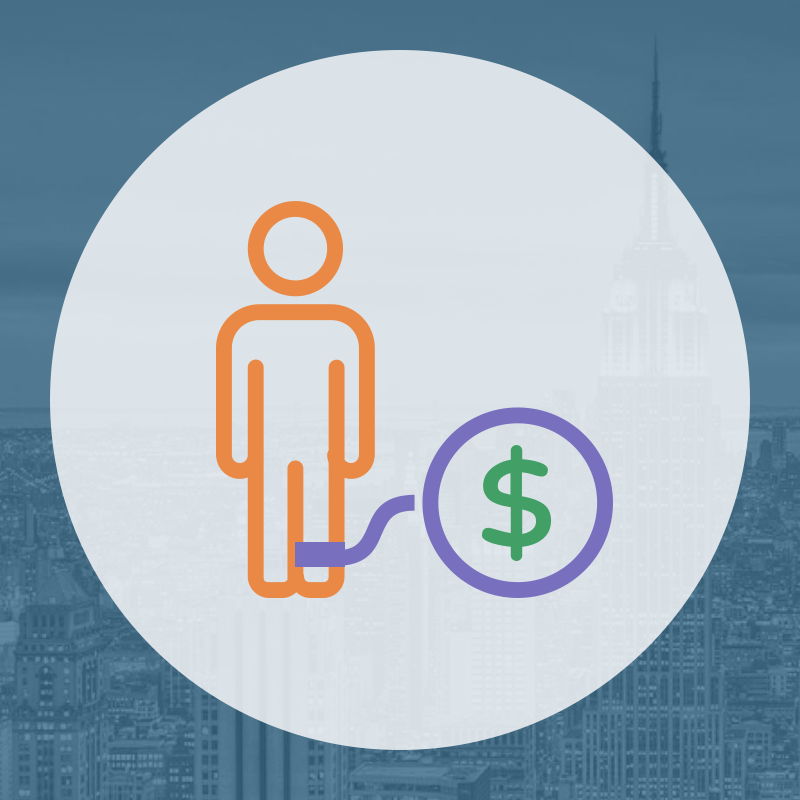 Today, the average college graduate leaves school with more than $36,000 in loans and many Millennials are being held back from achieving their goals because of debt from their college education. And don’t think our goals are just buying avocado toast or tickets to Coachella. No. We have real goals. Big goals like starting a business, buying a home, having a family and saving for retirement. But no matter how pumped we can get for these goals, we still must deal with paying off student loans.
Today, the average college graduate leaves school with more than $36,000 in loans and many Millennials are being held back from achieving their goals because of debt from their college education. And don’t think our goals are just buying avocado toast or tickets to Coachella. No. We have real goals. Big goals like starting a business, buying a home, having a family and saving for retirement. But no matter how pumped we can get for these goals, we still must deal with paying off student loans.
To make matters worse, this student debt problem is hitting older Millennials hard. This group (of which I belong to) has been paying student loan debt at a much slower rate than expected (if at all), this hampering our ability to save. Meanwhile, wage growth has remained relatively unchanged. So much for working hard in our careers. In order to flourish, all Millennials must figure out how to pay off student loan debt more effectively so to ensure we are not missing out on the great things in life.
Since student debt can set you back in the grand scheme of things, it should be a top priority and something you’ll want to get started on solving right now. There are many options out there to educate yourself, but you can take some simple steps to get started. Here are just six that you should consider if you have student loan debt and want to take control today.
How to Pay Off Student Debt
- Know what you owe and your options – There is no way you will know how to pay off your student loans, let alone reach your goals, without first having an idea how much you owe and the full details of your loans. To determine how to pay back student loans, first gather your statements and draft a spreadsheet. Write down who you owe, when it needs to be paid, what the interest rate is and the total amount outstanding. By fully understanding your obligations, you can finally take ownership of your debt.When it comes to federal student loans, you will have a variety of repayment options to choose from, so learning the ways to pay off student loans is critical. Begin by researching the standard, graduated and extended options for your loans. There are also income-driven repayment plans that can be used to reduce your payment each month, but please view these methods as a crutch, designed to help you get back to the standard ways to pay off student loans (Be Careful: gaming the system through income-driven plans could result in a large tax bill). Yes, these lenient plans may free up cash flow, but it might take longer to pay off debt and, in reality, you will likely end up paying more interest in the long-run.
- Consider refinancing – You may also be able to refinance or consolidate your loans in order to get a lower interest rate, allowing you to have lower monthly payments, shave years off your loan’s term or both. By paying less interest and reducing your payments, you may be able to start funding other goals sooner by paying off student loans faster. Additionally, as interest rates continue to increase, borrowers with variable interest rate loans will see their rates increase as well. If you do look to refinancing or consolidating, be sure to search for the best rates and terms on the market. Here’s a nifty infographic we created to help you understand when it might be a good idea to refinance.
- Master Cash Flow – In order to be able to pay back those loans, you need to become a master of your cash flow. In other words, you should know where each dollar leaving your bank account goes. Spend some time looking at your budget and figure out what you can devote to paying off loans along with any other financial goals you may have. You can’t let spending get out of control. You must be disciplined around your budget so you can execute on your financial goals. It’s the only way.
- Pay off the most expensive debt first – This strategy may not be for everyone, but it means that you would put a policy in place to pay off the loan(s) with the highest interest rate first. Also, it may be a good idea to set up auto-pay for your loans so you don’t fall behind. Missing payments can affect your overall credit and may even disqualify you from some of the more flexible repayment programs. Don’t let something so simple cause a problem.
- Negotiate higher pay – Any extra income can be put towards paying down debt. Don’t be the Millennial that doesn’t ever negotiate their salary. It can be an uncomfortable conversation for many of us, but if you really want to achieve your goals, earning additional income matters big time. Even and extra $5,000 a year can go a long way towards paying down debt and saving for other goals.
- Give Yourself a Break – You won’t be able to pay off your loans overnight nor will you even be able to come up with a plan on how to pay off your student loans in just one day. It takes time to get into debt, so naturally it will take time to get out of it. Don’t be too hard on yourself and get overly emotional about past decisions. You likely made the best decision you could at the time and you will do the same now by putting yourself in a better financial position moving forward. Keep working on tackling your debt so that you can achieve all your goals. Also, know that you are not alone and that many other people out there are dealing with the same thing you are. You are more than capable of handling your debt and I know you can do it
Conquer Your Loan
Students paying off college loans won’t be a thing of the past any time soon. In fact, the $1.5 trillion continues to grow exponentially along with the cost for attending college. For many of us, we are left with a financial reality that we must face head on. I hope the tips offered here are helpful in putting a system in place to pay down your loans while also moving you closer to achieving your financial goals.
